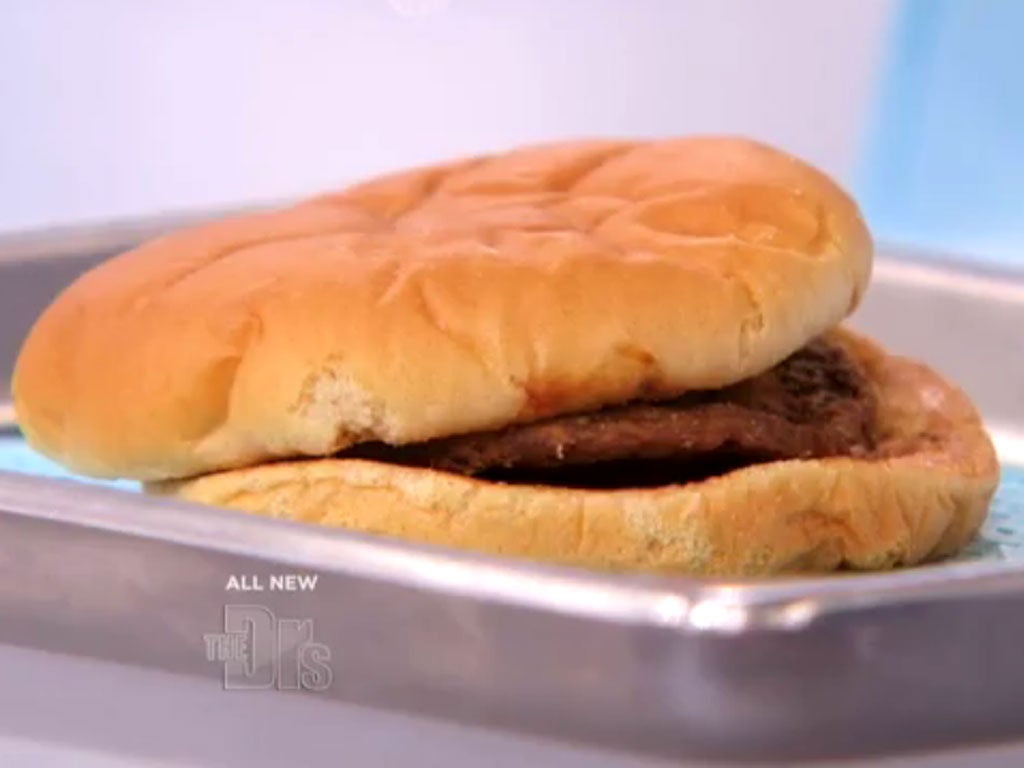14 years after it was made the 'World's oldest hamburger' looks like it hasn't aged a day...
There appeared to be no evidence of fungus, mould or rotten meat on the hamburger from 1999

Your support helps us to tell the story
From reproductive rights to climate change to Big Tech, The Independent is on the ground when the story is developing. Whether it's investigating the financials of Elon Musk's pro-Trump PAC or producing our latest documentary, 'The A Word', which shines a light on the American women fighting for reproductive rights, we know how important it is to parse out the facts from the messaging.
At such a critical moment in US history, we need reporters on the ground. Your donation allows us to keep sending journalists to speak to both sides of the story.
The Independent is trusted by Americans across the entire political spectrum. And unlike many other quality news outlets, we choose not to lock Americans out of our reporting and analysis with paywalls. We believe quality journalism should be available to everyone, paid for by those who can afford it.
Your support makes all the difference.It took just minutes to make but 14 years later the burger dubbed the 'World's Oldest' still looks exactly like it did in 1999.
After forgetting about the burger that he had originally planned to keep for just for two months David Whipple, from Utah, was shocked to discover that it showed virtually no signs of its age - aside from the pickle disintegrating.
There appeared to be no evidence of fungus, mould or rotten meat on the hamburger from 1999 which he had purchased to demonstrate to his friends how it would look the same since it was packed with preservatives. "It wasn't on purpose," Whipple said on show 'The Doctors.'
"I was showing some people how enzymes work and I thought a hamburger would be a good idea. And I used it for a month and then I forgot about it."
"It ended up in a paper sack in the original sack with the receipt in my coat pocket tossed in the back of my truck and it sat there for, I don't know, two or three months."
Mr Whipple told the programme he shows the hamburger to his grandchildren to convince them not to eat junk food. "It's great for my grand kids to see. To see what happens with fast food," he told the programme.
In response to the item McDonalds said they could not provide a detailed explanation as to the claims made in the programme without knowing what the exact conditions the burger was kept in.
In a lengthy press statement the company says the long life of the burger patty is not unusual stating that: "Bacteria and mold only grow under certain conditions.
"For example, without sufficient moisture – either in the food itself or the environment in which it is held – bacteria and mold and associated decomposition, is unlikely.
"If food is/or becomes dry enough, it won’t grow mold or bacteria. In fact, any food purchased from a restaurant or grocery store or prepared at home that lacks moisture would also dehydrate and see similar results if left in the same environment."
Join our commenting forum
Join thought-provoking conversations, follow other Independent readers and see their replies
Comments